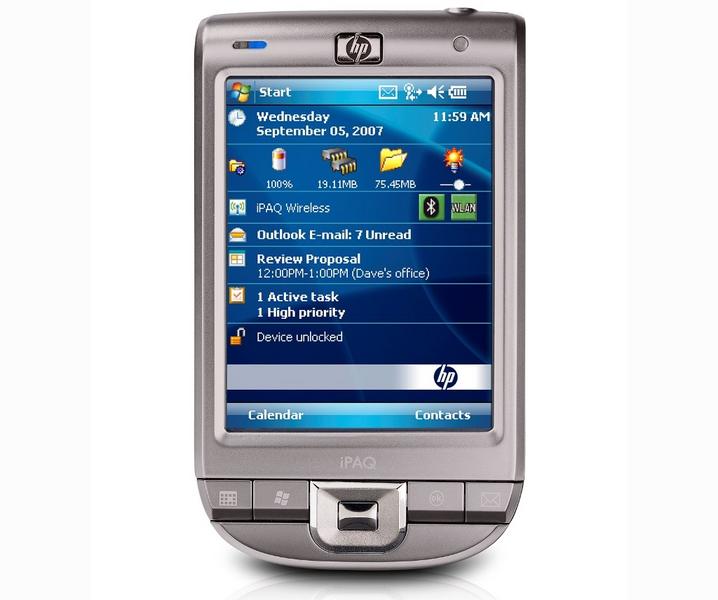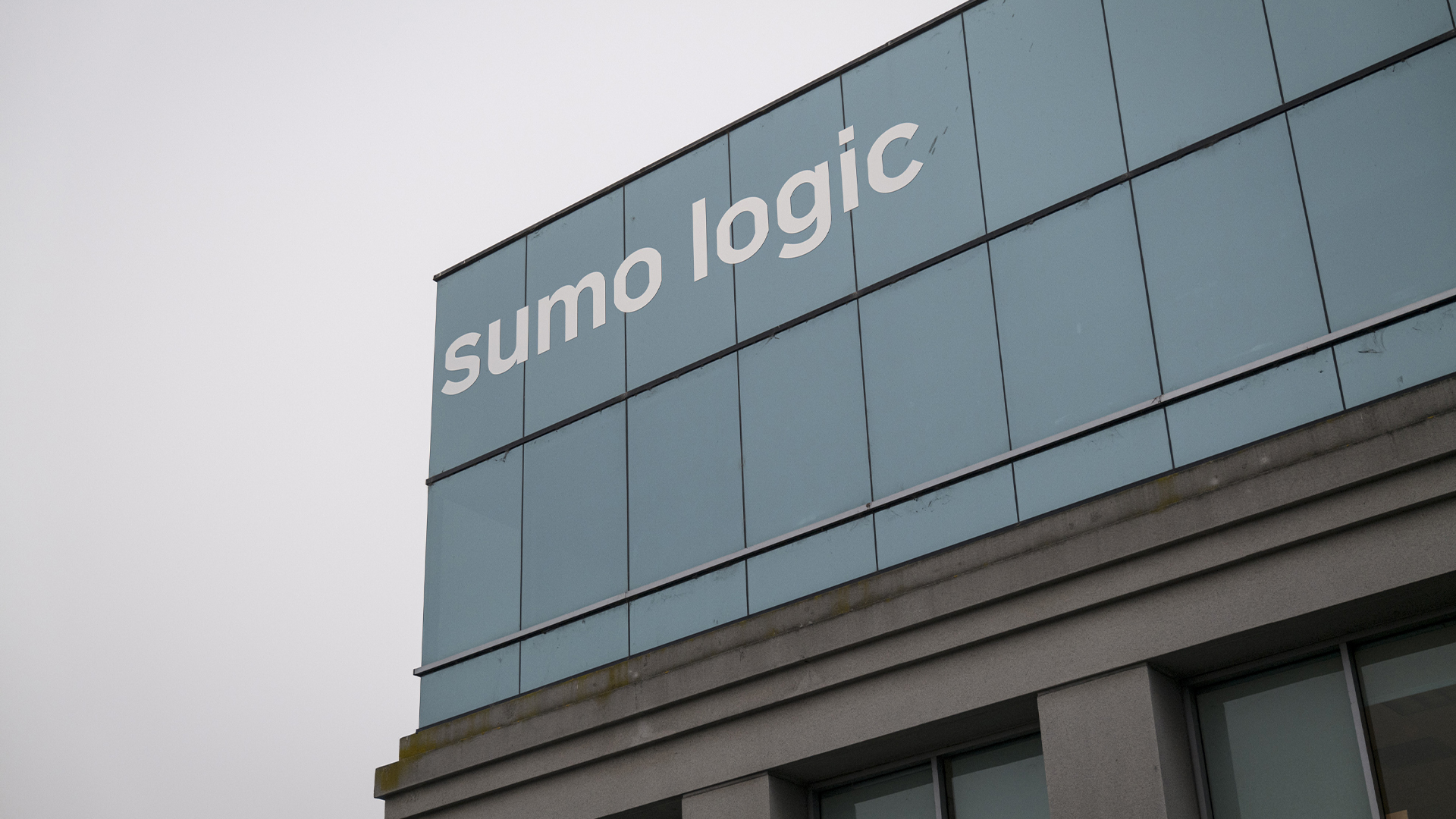HP unveils latest product lineup
HP launches new iPAQs, desktops, notebooks and solid state drives aimed at business users.


Sign up today and you will receive a free copy of our Future Focus 2025 report - the leading guidance on AI, cybersecurity and other IT challenges as per 700+ senior executives
You are now subscribed
Your newsletter sign-up was successful
HP has unveiled a new business computing range which includes five new iPAQs running Windows Mobile 6, solid state drive options for ultra-portable notebooks and desktop systems that take up no desktop space at all.
The iPAQ range now runs up from traditional PDAs to 3G phones. The €299 (200) 13mm thin iPAQ 114 has Wi-Fi and Bluetooth so it can be used with an existing mobile phone. The 4in VGA touch screen and 600MHz processor on the €399 (269) iPAQ 214 are designed to to support enterprise and line of business applications. Again it has Wi-Fi and Bluetooth and will be pre-certified for use as a VoIP handset with enterprise platforms from IP vendors like Avaya.
The iPAQ 914 Business Messenger and 614 Business Navigator are both €599 (403) 3G Windows Mobile 6 Professional devices with GPS and 3-megapixel cameras. Both come with iPAQ Device Connect software to simplify using them with a notebook PC as a wireless broadband modem. The iPAQ 914 has a smaller screen to make room for a QWERTY keyboard and comes with a larger-than-usual 1800 milliamp battery. The 614 has a Smart Touch scroll wheel overlaid on the numeric keyboard and comes with HP navigation software with turn-by-turn directions.
Aimed at business travellers, the €399 (269) iPAQ 314 Travel Companion has GPS, 3D navigation for major cities and a web-based trip planner that works with your calendar and preloads your route onto the device. Dave Rothschild, vice president of HP's handheld business unit, claims the 800 by 480 4.3in widescreen display offers DVD-quality resolution and says the Centrality chipset offers a faster initial GPS fix.
Both the 614 and 914 work with the HP Enterprise Mobility suite which allows IT administrators to manage devices and install applications over the air; a self-service portal also allows users to set up a new device, diagnose problems and lock or wipe a lost device. HP's Custom Touch programme for preloading custom applications, settings and themes is now available for as few as 200 units for the 214, 614 and 914.
The 12in HP Compaq 2710p tablet PC and 2510p ultraportable were first announced in spring but at the end of October HP will introduce versions with 1.8in 64GB flash-based solid state drives from SanDisk and Samsung (and later on from Intel). The larger 6910p and 8710p models will be available from the end of November with 2.5in drives, also 64GB. The drives add €999 (673) to the price of the notebooks but promise much faster performance and up to 50 per cent lower power consumption, meaning a five per cent increase in overall battery life.
According to HP's general manger for mobile computing Ted Clarke, without a motor or moving parts the drives are much quieter, but the biggest advantage is reliability and durability; "there is no wear and tear or degradation that might happen on a typical hard drive." The operational life compares well with hard disks, he says. "Improvements made in redundancy mean we can find the bad components and block those out; we're not concerned about lifetime in the latest implementation of these drives."
Sign up today and you will receive a free copy of our Future Focus 2025 report - the leading guidance on AI, cybersecurity and other IT challenges as per 700+ senior executives
Initially he expects the drives to appeal to users needing extreme reliability for their data, with experimental use in 2008 and more widespread adoption in 2009 as capacities increase.
HP's business desktops also get a refresh. New 80PLUS power supplies promise 15 per cent more efficiency, reducing energy and cooling costs. The Opteron-powered xw4550 workstation uses AMD's DirectConnect architecture, with integrated memory controllers and HyperTransport buses to boost system speed. HP's smallest desktop PC, the dc7800, has an ultra-slimline case, and the optional Integrated Work Center can be used to build the PC into an easily moved monitor stand - taking little more room than a standard 19in monitor.
The dc7800 also meets the stringent Energy Star 4.0 certification, and works with Verdiem SURVEYOR remote power management tools to reduce power consumption even further. Designed for Windows Vista and priced from €479 (323), it is based on Intel vPro and an optional flash memory module adds ReadyBoost support.
HP has also updated its Blade Workstation with NVidia graphics, quad-core Xeon processors and Red Hat Enterprise Linux 4, for financial applications, CAD, and scientific computing. Remote USB support means USB devices can be attached to virtual USB ports on blade servers and controlled from local desktops.
Mary is a freelance business technology journalist who has written for the likes of ITPro, CIO, ZDNet, TechRepublic, The New Stack, The Register, and many other online titles, as well as national publications like the Guardian and Financial Times. She has also held editor positions at AOL’s online technology channel, PC Plus, IT Expert, and Program Now. In her career spanning more than three decades, the Oxford University-educated journalist has seen and covered the development of the technology industry through many of its most significant stages.
Mary has experience in almost all areas of technology but specialises in all things Microsoft and has written two books on Windows 8. She also has extensive expertise in consumer hardware and cloud services - mobile phones to mainframes. Aside from reporting on the latest technology news and trends, and developing whitepapers for a range of industry clients, Mary also writes short technology mysteries and publishes them through Amazon.
-
 Sumo Logic expands European footprint with AWS Sovereign Cloud deal
Sumo Logic expands European footprint with AWS Sovereign Cloud dealNews The vendor is extending its AI-powered security platform to the AWS European Sovereign Cloud and Swiss Data Center
-
 Going all-in on digital sovereignty
Going all-in on digital sovereigntyITPro Podcast Geopolitical uncertainty is intensifying public and private sector focus on true sovereign workloads
